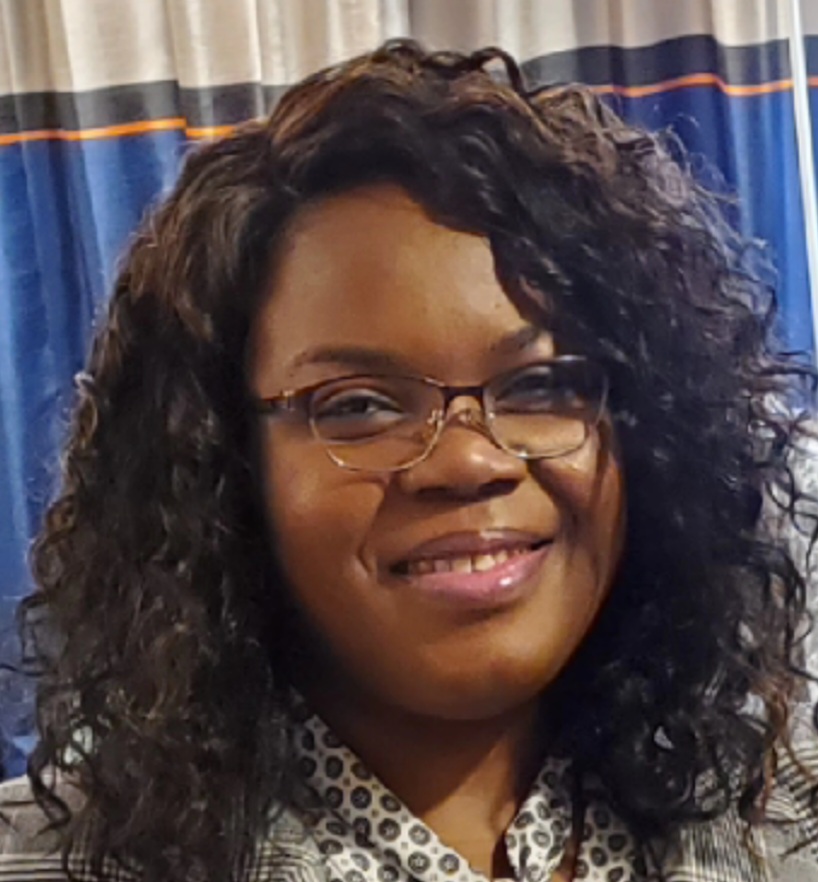Dissemination & Implementation Science
(PS5-D82) Examining Equitable Delivery of Courage Group to Veterans Who Have Experienced Sexual Violence

Jacinta Anyanwu, M.A.
Graduate Student
University of South Dakota
Vermillion, South Dakota
Jordyn Williams, B.A.
Project Coordinator
US Department of Veterans Affairs
Houston, Texas
Derrecka M. Boykin, Ph.D.
Research Health Scientist
Michael E Debakey VA Medical Center
Missouri City, Texas- MS
Mackenzie Shanahan, Ph.D.
Postdoctoral Fellow
Michael E Debakey VA Medical Center
Houston, Texas - JB
Jennifer Bryan, Ph.D.
SCMIRECC
US Department of Veterans Affairs
Houston, Texas - AA
Ali Abbas Asghar-Ali, M.D.
Psychiatrist
Michael E Debakey VA Medical Center
Houston, Texas
Author(s)
Co-Author(s)
Background:
Ensuring equitable access to health care for Veterans is mission critical to the Veterans Health Administration (VHA) and should be prioritized during the implementation of clinical programs. The present study describes a partnered evaluation of Courage Group, a skills-based psychotherapy group for Veterans who have experienced sexual violence (including childhood sexual abuse, military sexual trauma, and post-military sexual harassment or assault). In 2020, the VHA National Intimate Partner Violence Assistance Program (IPVAP) office was mandated by the Veterans Health Care and Benefits Improvement Act of 2020 to carry out a two-year pilot program “to assess the feasibility and advisability of assisting [Veterans] who have experienced … intimate partner violence or sexual assault in accessing benefits from the Department of Veterans Affairs” (Section 5304). Courage Group was identified as a promising practice because of its emphasis on addressing the psychosocial impacts of sexual violence. Given that historical bias and discrimination affect certain groups with a history of sexual violence (e.g., men; Hoyt et al., 2011), the present study assesses for potential differences in treatment access across Veteran subgroups.
Method:
In partnership with the VHA National IPVAP office, we are evaluating Courage Group administration across 10 VHA pilot sites. Program evaluation is based on the RE-AIM framework (Glasgow et al., 1999). This study will focus on “reach” of Courage Group, or the degree to which the treatment is equitably accessible to veterans from different cultural backgrounds (Shelton et al., 2020). Veteran demographics and treatment use data were extracted from electronic medical records.
Findings:
Data collection is still ongoing and will end in September 2023. To date, 222 veterans have been screened for participation in Courage Group. Of the 222 Veterans screened, 174 (78%) have enrolled in treatment. Patients predominantly identified as female (86%), non-Hispanic White (57%) or Black (25%) and lived in urban areas (72%). Notably, very few veterans (< 10%) identified as American Indian/Alaskan Native or Pacific Islander/Native Hawaiian despite the inclusion of VHA pilot sites that primarily serve these populations.
Conclusions:
Preliminary data signal differences in access to Courage Group across sex (assigned at birth), race/ethnicity, and setting (e.g., rural vs. urban residence). Data on gender identity were unavailable for this report, but important to consider in future studies. Additional research is needed to explore these potential treatment disparities and factors contributing to inequitable implementation using equity-focused frameworks like the Health Equity Implementation Framework (Woodward et al., 2019).
Learning Objectives: Attendees will be able to:
- Describe the prevalence and impacts of sexual violence among military populations
- Name psychosocial and systemic factors that influence differential access to treatment among Veteran subgroups
- Identify factors that affect equitable implementation of evidence-based psychotherapy

